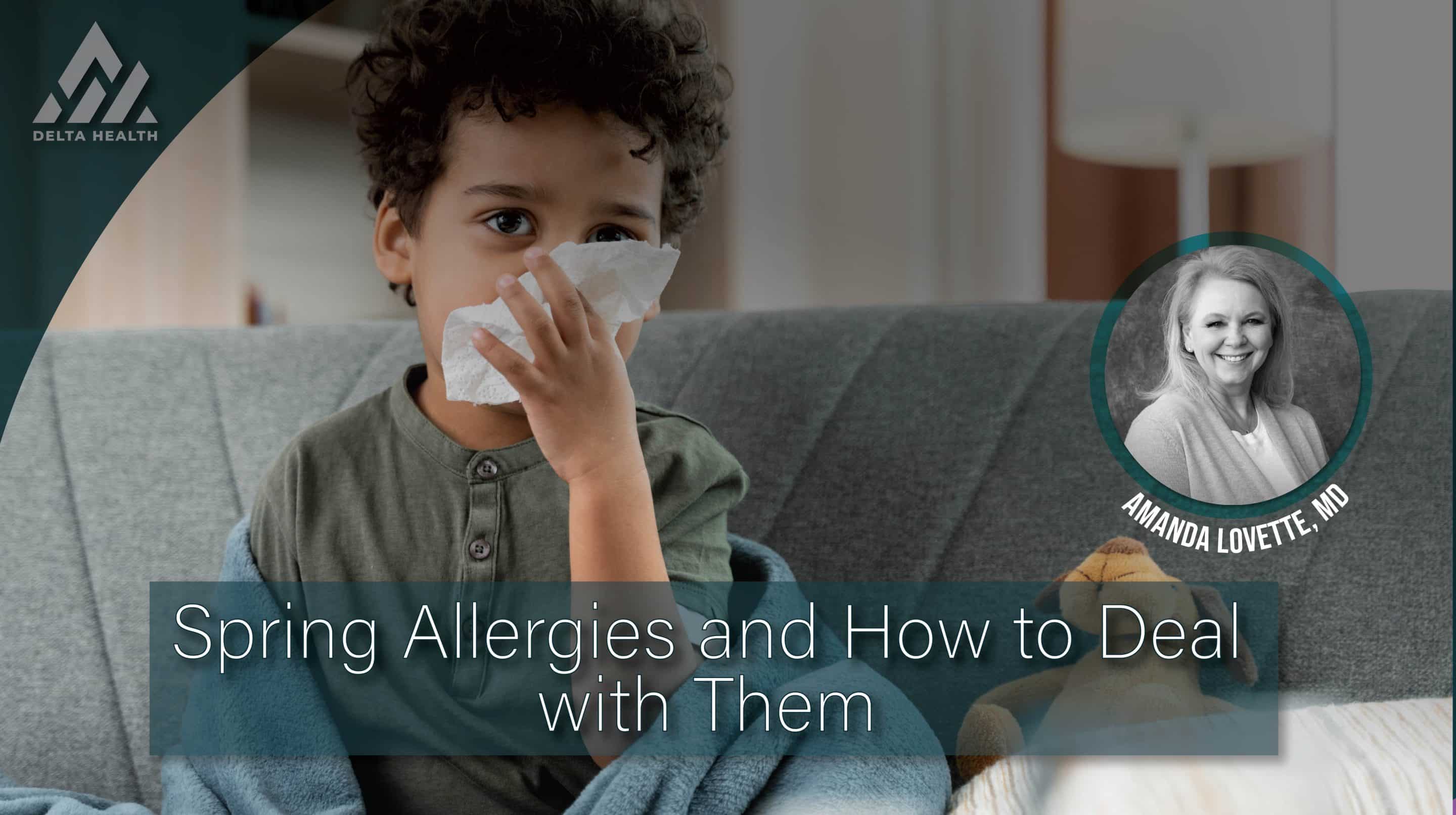I know it is spring even if I never go outside. I can hear the sneezing and sniffling from every exam room, and I myself am constantly reaching for the allergy medicine and the Kleenex.
We are all suffering this year. As I write this, tree pollen, including Juniper, Cottonwood, Poplar, and Elm) is very high in our air, though the allergists encourage us to hang in there because this pollen tends to decrease in late April/Early May in our neck of the woods.
Allergic rhinitis with its runny nose, sneezing, and itchy nose and eyes, is due to exposure to allergens in both the outside and inside environment. Perennial, or year-round, allergies are often seen in those people who suffer from allergies due to indoor items, such as dust mites, animal dander, cockroach dander, and molds. These people can also suffer from sensitivities to irritants like strong-smelling perfumes, chemical cleaners, smoke, or car exhaust. Other people suffer from seasonal allergies to outdoor plants and animals but may not have symptoms outside of certain times of the year.
We deal with this each year. How can we help our children get through this trying time just a little easier? Tips from the American Academy of Allergy, Asthma, and Immunology may help.
Indoor Allergy Tips
For indoor allergies, try to keep the triggers for the allergy to a minimum. For example, if your child is allergic to dust mites, wash his bedsheets in hot water at least once a week, and use a dust mite mattress and pillow covers. Minimize the dusting and vacuuming you do while he is in the house because these can stir up indoor allergens. Try to keep animals out of the room in which your child is sleeping, if possible, especially if he seems sensitive to the animal in close quarters.
Chemical Smells and Household Cleaners
Chemical smells, like strong-smelling cleaners, perfumes, and smoke should be avoided, if at all possible, in environments where there are people who are sensitive to these things. Long-term exposure to these and other allergens can cause lung irritation and inflammation in sensitive people. Try not to use strong-smelling cleaners or use them when the child is out of the house. Don’t wear perfumes if possible, and, smokers should stay out of homes especially where there are children with an allergy or sensitivity to the smoke. Consider installing an air filter in the home if you are unable to avoid these irritants and allergens.
Recommended Allergy Medicine Regimen
Many healthcare providers will recommend a daily allergy medicine regimen starting early in the season that the allergy sufferer is sensitive to, often the spring or fall. This may include over-the-counter nasal steroids or antihistamines, or your child may require prescription medications for his symptoms. It is very important that children do their prescribed medication regimens daily – one common behavior I see is that children stop taking the medications when they are feeling better and not having symptoms. The symptoms will then return since it is the medicine that is keeping the symptoms at bay!
Outdoor Allergens
Of course, if your child is allergic to pollens and the world outdoors is covered in yellow pollen dust, it is helpful to stay inside in the air conditioning, keep the windows closed, and change air filters on a routine basis when they are dirty. However, sometimes this is just not possible, and your child must be outdoors. Days where it is cloudy, cold, rainy, and windless are days when allergy levels are typically lower so your child might tolerate these outside days better, though they might not be the most comfortable to enjoy! When your child comes in from playing outside, wash his hands, and even consider giving him a bath or shower which will reduce the amount of pollen on his skin that can get into his respiratory tract.
However, if your child is getting his daily allergy medications and still having breakthrough symptoms, then consider discussing with your healthcare provider different prescription medications or even a referral to an allergist for further treatment.
Spring is meant to be enjoyed – hopefully, we can find ways to enjoy it without the watery eyes and sneezing!
If you are still looking for further tips and support, make sure to join the Healthy Kids Western Slope Facebook Group, or go online to deltahealthco.org/delta-health-pediatrics/. You can also call 970.546.4000.


